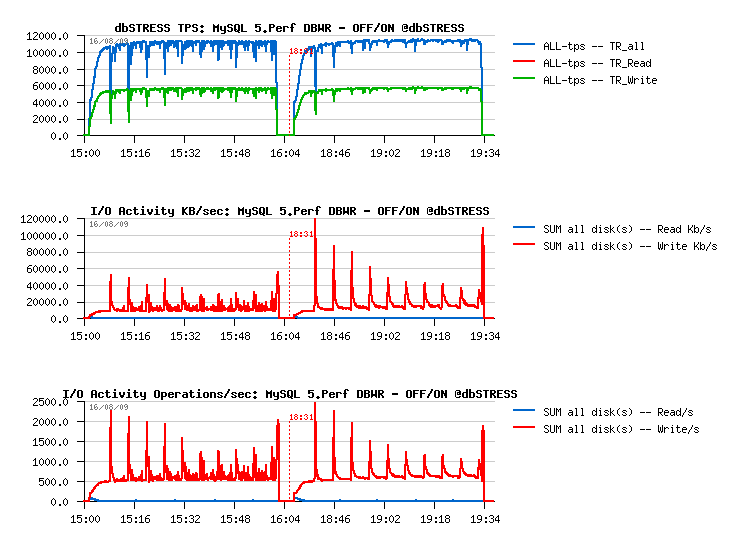« MySQL Performance: Final fix for Ahead Flushing & Purge Lag | Main | dim_STAT: version 8.3 was updated! »
Wednesday, 26 August, 2009
MySQL Performance: InnoDB Doublewrite Buffer Impact
Recently Mark Callaghan(who I trust a lot) published on his facebook blog a post about a Doublewrite Buffer impact . And Sarah Sproehnle (who I trust a lot too :-)) commented it by saying:
..the doublewrite buffer is actually a benefit. Beyond guaranteeing that pages are recoverable, it also reduces the required fsyncs. Without it, each page that is written to the tablespace would need to be fsync'ed. With doublewrite enabled, a chunk of pages is written to the doublewrite buffer then 1 fsync is called, then pages are written to the tablespace and then 1 fsync...
While I'm completely agree with Mark that we absolutely need a recovery tool to be able at least to repair what is "repairable" (nobody protected from an accident :-)). But on the same time I was curious to measure the doublewrite buffer impact under a heavy read+write workload. I've noted it in my TODO list, but only recently was able to test XtraDB, MySQL 5.4, InnoDB plugin-1.0.4 and MySQL 5.Perf with doublewrite enabled (before I run all my tests with innodb_doublewrite=0 only).
For my big surprise with innodb_doublewrite=1 setting I observed no performance degradation (or near) on all engines! Even the higher rated 5.Perf was still able to keep its TPS level. From the I/O level a flushed volume become slightly higher, but nothing important as you may see from the following graph (the first part of the graph is representing the workload with a doublewrite off, and the second one with a doublewrite on) :

I would even say it brings more stability to the workload! And knowing it also brings more data security - it should be considered as a must option :-)
But now I'm curious : what kind of impact in any other cases was observed by you?...
Thank you for your feedback! :-)